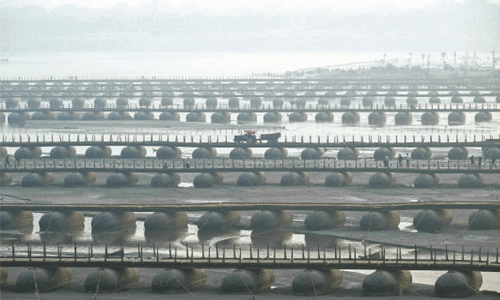SEPARATISTS and nationalists, secular political party workers, settlers, Hazaras, policemen, civilians killed by landmines and IEDs — is anyone safe in Balochistan anymore? The last few days and weeks have seen the front pages of newspapers filled with stories of all shades of violence in the province, whether sectarian, Islamist, political or ethnic. The Awami National Party has been the latest victim, but the day before the Kuchlak blast saw the discovery of the dead bodies of six miners — likely settlers from Swat — and dozens of Hazaras have been killed this year. Alongside these stories have been running reports of the Supreme Court’s persistent efforts to get security forces to produce missing people in court and restore law and order.
But the SC has done about as much as it can, and its limited success so far points to the real roadblocks standing in the way of peace in Balochistan: the issue of missing persons requires a political solution spearheaded by a committed federal government and accompanied by a change in the mindset of security agencies. Underpinning all of this will have to be a genuine resolve to address the concerns of Baloch nationalists and even separatists; measures like Aghaz-i-Huqooq-i-Balochistan are important, but will not be enough. Prime Minister Gilani’s government had made feeble attempts to bring Baloch leaders to the negotiating table, and the new prime minister has made a similar effort through his call for talks in Quetta yesterday. But nothing has come out of such rhetoric in the past, and there will be no movement until capable interlocutors with contacts and respect among Baloch leaders are given a concrete mandate to launch talks in a meaningful way, through back channels if necessary. That would also provide a basis to ask security agencies to rein in their zeal to ‘disappear’ people with real and imagined links to separatist activities.
When it comes to the broader law and order problem, however, the provincial government has a larger role to play, and is failing miserably. It is true that the Raisani government has limited room to manoeuvre; despite, for example, repeated declarations that the Frontier Corps should report to the provincial administration, most recently at the end of May, the organisation is widely perceived to operate outside civilian control. But policing is also inadequate, failing to prevent the kidnappings and killings of settlers and Hazaras, and provincial lawmakers are perceived as being corrupt and more concerned with personal feuds than the province’s law-and-order and development problems. Along with the federal government, they continue to let the people of Balochistan down.











































